Ancient Greece before the arrival of the Greeks was inhabited by Pelasgian peoples. They never assimilated further with the Greeks, disappearing into oblivion. Thanks to them, according to Herodotus, the ancient Hellenes arose a religion with the gods of Ancient Greece in its modern understanding.
Characteristic features of the religion of Ancient Greece.
With the emergence of the first statehood of Hellas, approximately 3000 BC, religion began to play an increasingly important role in the life of the ancient Greeks. The main gods were the titans, who personified the elements of nature.
The supreme god of the Titans, Kronos, killed his father in a struggle for power. He feared the same fate and therefore devoured his sons. One of them was saved by Rhea, the wife of Kronos. His name was Zeus. When Zeus grew up, he forced his father to return his swallowed sons from his womb and, joining forces with other gods, began the fight against the Titans.
Elder Gods
In these numerous battles, according to the myths of Ancient Greece, the gods led by Zeus won. After the victory, they divided power and went to live on the sacred Mount Olympus.
- Zeus began to rule the sky, lightning and thunder. He became the main one in the pantheon of twelve elder gods. All other gods obeyed him and considered him the most fair. The ancient Greeks erected a statue of Zeus; it was located on the island of Poseidon and reached 15 meters.

Rice. 1. Statue of Zeus on the island of Poseidon.
- He began to rule the seas and oceans Poseidon . He was married to the goddess Amphitrite, from whom was born a son, Triton. In anger, this god was terrible: he could cause a flood, or destroy a seaport with waves. Where Poseidon walked on the ground, spring water began to flow. This god was revered by all sea travelers and sailors.
- Hades didn't want to rule the surface world and went to Tartarus, where he began to rule the kingdom of the dead. On a chain at the entrance to the underworld sat his faithful three-headed dog Cerberus, who did not allow the living into Tartarus. Hades stole his beloved niece Persephone from Zeus and forced her to marry him. The ancient Greeks sacrificed a black bull to Hades. Usually it was placed in front of crevices or the entrance to a cave, which personified the entrance to the kingdom of the dead.
- The main female goddess among the Greeks was considered Hera . Last wife Zeus was the patroness of marriage and severely punished married people for infidelity. The ancient Greeks worshiped her and asked for the birth of strong and healthy children.
- He was the god of sunshine and the crown of male beauty. In addition to spiritual purity, this god was endowed with the abilities of a healer. Later, the ancient Greeks revered him as a patron of the arts, including music.

Rice. 2. Apollo.
The religion of ancient Greece did not carry symbols of immortality; the gods, like people, had completely human traits: they fell in love, suffered, were capable of mercy or betrayal. In the minds of the ancient Greeks, the gods conquered the world from the natural elements, made this world a better place and became its patrons and protectors.
- The god of all borders separating one from another and roads was Hermes . He had a sharp mind and resourcefulness, because he was the patron of trade, knew several languages and stood out with brilliant manners. In addition to merchants, this god was revered by shepherds and travelers.
- Hephaestus - the god of fire - patronized the blacksmith's craft, and was himself considered an unsurpassed blacksmith. He was lame on both legs because, according to legend, he was thrown down by Zeus for helping Hera get out of her shackles.
- Ares - God of unjust wars. He was the son of Zeus and Hera. Zeus secretly hated him for his wild and unbridled temper. Ares loved wild games and could start a conflict without any reason. He was married to Aphrodite.
All Olympian gods and goddesses led a pleasure lifestyle, indulging in intrigue and passion. Each of the gods was powerful in its own way, so feuds very often ended in compromise.
TOP 4 articleswho are reading along with this
Lesser Gods
The elder gods had children, this generation was more numerous than the previous one, some of them:
- Dionysus - god of fertility and winemaking. He patronized grape growing and dancing. According to the legends of Ancient Greece, Hera hated Dionysus and drove him crazy. Wherever Dionysus appeared, he was accompanied by unbridled drunkenness, causeless fun and even murder.
- Helios - Sun God. This god performed the same functions as Apollo, was a solar deity, and at the same time the eyes of Zeus: he knew what and where was going on in the mortal world of people. In Greece, many statues were erected in honor of Helios, one of them is called the Colossus of Rhodes and was one of the Seven Wonders of the World. The statue reached 33 meters and stood on the island of Rhodes in the Aegean Sea.

Rice. 3. Colossus of Rhodes.
- Iris carried out small and large orders of the gods. She carried messages and news about the gods of Olympus to people. The ancient Greeks also revered her as the goddess of the rainbow.
- Themis - goddess of justice, protector of the unjustly accused. Helped Zeus start the Trojan War. The Greeks depicted this goddess blindfolded, which meant her impartiality. The cornucopia in the hands of Themis meant the measure of retribution for those who appeared before her fair trial.
According to the religion of Ancient Greece, you can recreate a picture of the life of the ancient Greeks.
The following table presents short list and a description of the gods of Ancient Greece:
|
God's name |
What did he manage? |
Characteristic |
|
Sky, lightning and thunder |
He was the first of the gods to instill in people the concepts of honesty, conscience and shame. He had punitive powers. |
|
|
Poseidon |
Seas and oceans |
He was depicted with an angry face. He did not tolerate objections, did not tolerate insults. |
|
Underground Kingdom of the Dead |
Often portrayed as generous and hospitable. |
|
|
Homely |
Jealous and power-hungry Hera cruelly punishes for adultery. |
|
|
Artemis |
He loves animals, although he patronizes hunting. |
|
|
Patron of the art of blacksmithing, he made lightning bolts for Zeus himself, because he himself was an unsurpassed master blacksmith. |
||
|
Vegetation |
He patronized theaters, winemaking and dancing. |
|
|
Justice |
She was the first prophetess. She convened the gods of Olympus for a council. She was considered the most impartial and fair judge. |
The veneration of the god Dionysus, which came from the north of the Balkans, developed separately from the rest of polytheism. Over time, this worship became monotheistic (monotheism - one god). Historians generally believe that the worship of Dionysus was the first harbinger of the formation of the Christian religion.
What have we learned?
The religion of Ancient Greece, which is studied in grade 5, unlike other religions, endowed the gods with human traits, which brought them closer to people and allowed contemporaries to better understand the life of the ancient Greeks. In addition, although the Greeks believed in afterlife, but this did not serve as the basis for them to worship the gods.
Test on the topic
Evaluation of the report
average rating: 4.7. Total ratings received: 458.
Gods of ancient Greece
Hades - god - ruler of the kingdom of the dead.
Antaeus is a hero of myths, a giant, the son of Poseidon and the Earth of Gaia. The earth gave its son strength, thanks to which no one could control him.
Apollo is the god of sunlight. The Greeks depicted him as a beautiful young man.
Ares is the god of treacherous war, the son of Zeus and Hera.
Asclepius - god of medicine, son of Apollo and the nymph Coronis
Boreas is the god of the north wind, the son of the Titanides Astraeus (starry sky) and Eos (morning dawn), brother of Zephyr and Note. He was depicted as a winged, long-haired, bearded, powerful deity.
Bacchus is one of the names of Dionysus.
Helios (Helium) is the god of the Sun, brother of Selene (goddess of the Moon) and Eos (dawn). In late antiquity he was identified with Apollo, the god of sunlight.
Hermes is the son of Zeus and Maya, one of the most significant greek gods. Patron of wanderers, crafts, trade, thieves. Possessing the gift of eloquence.
Hephaestus is the son of Zeus and Hera, the god of fire and blacksmithing. He was considered the patron of artisans.
Hypnos is the deity of sleep, the son of Nyx (Night). He was depicted as a winged youth.
Dionysus (Bacchus) is the god of viticulture and winemaking, the object of a number of cults and mysteries. He was depicted either as an obese elderly man or as a young man with a wreath of grape leaves on his head.
Zagreus is the god of fertility, the son of Zeus and Persephone.
Zeus is the supreme god, king of gods and people.
Zephyr is the god of the west wind.
Iacchus is the god of fertility.
Kronos is a titan, younger son Gaia and Uranus, father of Zeus. He ruled the world of gods and people and was overthrown from the throne by Zeus...
Mom is the son of the goddess of Night, the god of slander.
Morpheus is one of the sons of Hypnos, the god of dreams.
Nereus is the son of Gaia and Pontus, a meek sea god.
Not - the god of the south wind, was depicted with a beard and wings.
Ocean is a titan, the son of Gaia and Uranus, the brother and husband of Tethys and the father of all the rivers of the world.
The Olympians are the supreme gods of the younger generation of Greek gods, led by Zeus, who lived on the top of Mount Olympus.
Pan is a forest god, the son of Hermes and Dryope, a goat-footed man with horns. He was considered the patron saint of shepherds and small livestock.
Pluto is the god of the underworld, often identified with Hades, but unlike him, he owned not the souls of the dead, but the riches of the underworld.
Plutos is the son of Demeter, a god who gives wealth to people.
Pontus is one of the senior Greek deities, the offspring of Gaia, the god of the sea, the father of many titans and gods.
Poseidon is one of the Olympian gods, the brother of Zeus and Hades, who rules over the sea elements. Poseidon was also subject to the bowels of the earth,
he commanded storms and earthquakes.
Proteus is a sea deity, son of Poseidon, patron of seals. He had the gift of reincarnation and prophecy.
Satyrs are goat-footed creatures, demons of fertility.
Thanatos is the personification of death, the twin brother of Hypnos.
The Titans are a generation of Greek gods, the ancestors of the Olympians.
Typhon is a hundred-headed dragon born of Gaia or Hera. During the battle of the Olympians and the Titans, he was defeated by Zeus and imprisoned under the volcano Etna in Sicily.
Triton is the son of Poseidon, one of the sea deities, a man with a fish tail instead of legs, holding a trident and a twisted shell - a horn.
Chaos is the endless empty space from which at the beginning of time arose ancient gods Greek religion - Nyx and Erebus.
Chthonic gods are deities of the underworld and fertility, relatives of the Olympians. These included Hades, Hecate, Hermes, Gaia, Demeter, Dionysus and Persephone.
Cyclops are giants with one eye in the middle of their forehead, children of Uranus and Gaia.
Mythology offers a fascinating, colorful journey into ancient times. Immortal powerful beings lived on high mountain Olympus and, according to myths, influenced the structure of the world, changed the lives of people who turned to them for help. What were the gods of ancient Greece: a list and description of their deeds, meaning for the Greeks.
In Ancient Hellas, the most revered were the younger celestials, who defeated the older gods - the Titans. The young gods of ancient Greece settled on Mount Olympus, with the exception of Hades, who lived in his underground kingdom. Each immortal had a certain higher power and performed its own functions. The gods were no strangers to experiences and feelings; their behavior sometimes resembled people. The only thing they differed in was immortality.
In ancient Greece, 12 deities were worshiped. This list does not include the underground god Hades, but he was revered and feared by the people of Ancient Greece. Over time, the relationship between immortal creatures has grown into myths and legends that are of genuine interest today.
We offer a list and pictures of all 12 olympian gods and Aida:









Apollo



Mighty Zeus
Zeus was considered the main god on Olympus and the ruler of the whole world in ancient Greece. Lord of thunder and lightning, distributing good and evil. Zeus's father was the titan Kronos, and his mother was Rhea. Kronos was predicted that he would lose power because of his own children. In order to prevent this, the titan swallowed all of its newborn children. Rhea managed to hide the son of Zeus in a cave where the boy was growing up. The matured Zeus teamed up with his brothers and sisters to overthrow Kronos. After the death of the ruler, the brothers divided power: Zeus got the heavens, Poseidon the sea, Hades the underworld.
At the beginning of his reign, Zeus was a real tyrant. Tried to destroy the human race twice. Only after consolidating his position in power did he slightly loosen the reins of government. The ancient Greek gods submitted to the power of the Thunderer, only occasionally trying to rebel. Zeus brought kings to rule, strengthened rights and order.
The wife of Zeus was the majestic Hera. Her husband appreciated her and gave her honors. The Thunderer was a passionate person; in addition to his wife, he had many love affairs.
Zeus' lovers were:
- Diameter,
- Eurynoma,
- Mnemosyne,
- Mayan,
- Themis.
Not all women reciprocated the thunderer's feelings. Then Zeus took the form of their lovers, animals, natural phenomena to get your way.
Hera gave birth to three children: Hephaestus, Hebe and Ares. Other women gave birth to Hermes, Charit, Persephone, Aphrodite and many others.
Note! All of Zeus' wives were his sisters.
Useful video: Zeus is the most powerful God of Olympus
God of War Ares
He preferred bloody, treacherous massacres carried out for the sake of war itself. The god of war in Greek mythology was so cruel and ferocious that his own father hated him. In Greek mythology, the origins of Ares are ambiguous. Some sources claim that he was born from an immaculate conception from the magic flower of Hera. According to another version, the parents were Zeus and Hera.
The father hated his son so much that if it were not for the relationship, he would have severely punished him. Loving mother always protected Ares, helped. But she could not accept her son’s vicious relationship with Aphrodite.
According to myth, Ares was a merciless warrior who crushed many enemies. Not a single bloody battle took place without him. His companions Enyo and Eris accompanied him in all battles, causing fury among the warriors and patronizing discord. .The God of War was not considered invincible. After each defeat, he became submissive and quiet for a short time, and came to his father with complaints.
Ares was handsome, had a muscular, strong body, fair skin, regular facial features, so he often indulged in lovemaking. Thanks to his beauty, even with a very vile character, he was very popular with the opposite sex. Immortal, simple women competed with each other for the right to become his lover.
He never raped women, captivated by his charisma, the ladies gave themselves to him of their own free will. A passionate, ardent lover gave unearthly pleasure, so women always remembered their lover with warmth and love.
Ares had many lovers, but the only woman he loved was Aphrodite. Their connection in mythology is even called marriage, despite the fact that the beloved was married to Hephaestus. In mythology, the relationship between Ares and Aphrodite is described with condemnation.
Numerous love affairs gave him about 50 children. Aphrodite gave birth to seven children: Pothos, Himeros, Deimos, Phobos, Anteros, Eros and Harmony. Ares loved his children, always came to the rescue, stood up for the heirs.
Some people are now turning to the divine fighter: asking for victory over enemies, success.
Majestic Apollo
Apollo is the sun god of the Greeks. He was revered as the patron of artistic attractiveness. He was also a healer, a talented predictor, and a brave hero. The ambitious, eternally young god occupied a place of honor on Olympus. He was second after Zeus.
Apollo and his twin sister Artemis were born on the island of Delos. Their parents are Zeus and Leto. The children were born at seven months old on the seventh day of the month. It was from that time that the seventh number began to be revered by the Greeks. Their mother had to hide from Hera’s wrath for a long time. The rest of the inhabitants of Olympus joyfully received the news of the birth of babies, generously gifted them, fed them with ambrosia and nectar.
The young man quickly matured. On the fourth day after birth, he already killed the snake. At the age of four he built a temple. The giant Titius, who insulted Leto's mother, suffered from the arrows of the young god. For killing the serpent Python, he was exiled by his father to Earth, where he served as a shepherd for eight years. Beautiful, charming man was very popular among women. But despite this, he was unhappy in love. Many women deceived him and rejected his love. Coronis gave birth to Asclepius, Cyrene - Aristaeus. Also among the offspring were Pythagoras, Euripides, and Orpheus.
Useful video: Apollo - light and darkness
Hephaestus is the god of fire and blacksmithing. Since childhood I was weak and ugly. Hera's own mother, seeing her sick child, was ashamed to show him to other deities and threw him into the sea, but the baby survived. The sea goddess Thetis became the adoptive mother. When Hephaestus grew up, his own mother recognized her son. According to some myths, the lame Hephaestus forgave my own mother, even defended her before Zeus. For disobedience, the Thunderer threw Hephaestus from a cliff, which caused him to become lame on both legs.
All buildings on Olympus were built by Hephaestus. The Olympic army was equipped with armor made by his hands. Pital great love to the blacksmith's craft. If other ancient Greek gods were reluctant to engage in physical labor, Hephaestus spent all his time at work. Craftsmen and blacksmiths turned to him for help. The patron of crafts taught people blacksmithing. Hephaestus symbolizes the power, complex nature of the flame.
He was ugly and therefore not interesting to women. By order of Zeus, Aphrodite became his wife. The beautiful wife was unable to love her husband, to whom she was forcibly married.
Beautiful Aphrodite
The goddess of love in myths - Aphrodite - was revered by the Greeks as the embodiment of eternal spring and youth. She patronized beauty, fertility, and marriages. She was asked for her lover's favor. Many generations associate the names of Aphrodite and Apollo with beauty and impeccability.
Aphrodite brought peace and harmony into people's lives. But the goddess's favor extended only to those who revered her. She severely punished everyone who did not appreciate her gifts. This is what happened with Narcissus. The handsome young man paid with his life for not appreciating his beauty and the benefits bestowed by Aphrodite.
The impeccable beauty of the goddess Aphrodite conquered the inhabitants of Olympus and mere mortals. She was served by the patroness of grace and beauty - Harita and Ora. Everywhere where her foot stepped, flowers bloomed. Aphrodite never suffered defeat in love affairs, she always received reciprocity from her lovers, and personified voluptuousness.
The goddess of love Aphrodite was not faithful in marriage and easily started relationships with other men. She did not give her husband a single heir, while she gave birth to many children to her lovers. The fruits of their love with Ares were: Phobos, Deimos, Harmony, Eros, Anteros. She gave Dionysus a son, Priapus. From Hermes, Aphrodite gave birth to Hemaphrodite. Aeneas was born to the goddess from King Anchises.
There are two versions of the birth of Aphrodite. According to one of them, she was born as an adult from sea foam and came ashore on the island of Cyprus. According to another version, she was born in the traditional way, her parents were Zeus and the nymph Dione.
Useful video: mistress of love desires
Conclusion
The ancient Greek gods are endowed with all the virtues and vices that are inherent in people themselves. The Greeks used myths to explain phenomena they did not understand. The Celestials were not without weaknesses. Behind his power and beautiful appearance, there were many vices hidden. Getting to know the gods allows you to learn better about the life and customs of ancient peoples, and get in touch with history.
Known to many since childhood. Some were seriously fascinated by the myths of ancient Greece, while others were instilled with a love of ancient culture at school. It would seem strange to transfer this knowledge to adult life, because all this is actually a myth.
Brief introduction:
However, the ancient Greek gods and the events that happen to them are reflected in many works of literature and cinema; almost all modern plots are taken precisely from antiquity.
Knowledge of the gods of ancient Greece- a necessary condition for understanding many philosophical issues. That is why every person is simply obliged to know as much as possible about the famous gods from Olympus.

Generations of gods of ancient Grtions
- Distinguish several generations ancient Greek gods.
- At first there was only darkness, from which Chaos was formed. Having united together, darkness and chaos gave birth to Erob, who personified darkness, Nyukta, or as she is also callednight, Uranus - the sky, Eros - love, Gaia - mother earth and Tartarus, which is the abyss.

I generation of gods
- All heavenly gods appeared thanks to the union of Gaia and Uranus, the sea deities originated from Pontos, the union with Tartas led to the emergence of giants, while earthly creatures are the flesh of Gaia herself.
- In principle, all the ancient Greek gods originated from her; she came up with the names, giving life.
- Usually the earth goddess was depicted as pretty big women, which rises halfway above the planet..
- Uranus was the ruler of the universe. If it was depicted, it was only in the form of an all-encompassing bronze dome covering the entire world.
- Together with Gaia they gave birth to several titan gods:
- The ocean (all the world's waters, was horned bull with a fish tail)
- Tethys (also titanide), Thea, Rhea, Themis, Mnemosyne like the goddess of memory,
- Crius (this titan had the ability to freeze), Kronos.
- In addition to the Titans, the Cyclopes are considered children of Uranus and Gaia. Hated by their father, they were sent down to Tartarus for a long time.
- For a long time, the power of Uranus was beyond comparison; he single-handedly controlled his children, until one of them, Kronos, otherwise called Chronos, decided to overthrow his father from his pedestal.
- The Time Lord managed to depose his father Uranus by killing him with a sickle. As a result of the death of Uranus, the great titans and titanides appeared on earth, who became the first inhabitants of the planet. Gaia also played a certain role in this; she could not forgive her husband for expelling the firstborn of the Cyclops to Tartarus. From the blood of Uranus appeared the Erinyes, creatures who patronized blood feuds. Kronos thus achieved unprecedented power, but the expulsion of his father did not go unnoticed by his own personality.
- Kronos's wife was his Native sister Titanide Rhea.. When Kronos became a father, he was madly afraid that one of his children would also turn out to be a traitor. According to thisTitan devoured his offspring as soon as they were born. Kronos's fears were justified by one of his sons, the great Zeus, who sent his father into the darkness of Tartarus.
II generation of gods
- The Titans and Titanides are the second generation of ancient Greek gods.
III generation of gods
- The most famous and familiar to modern man is third generation.
- As is already clear, the main one among them was Zeus, he was the unconditional leader, all life on earth strictly obeyed him.
- Besides Zeus t third generation of gods Ancient Greece has 11 more Olympian gods.
- Their wide popularity is justified by the fact that thesethe gods, as the legends say, came down to people and participated in their lives, while the titans always remained on the sidelines, living their own lives, each performing their functions separately.
- All 12 gods lived , based on myths, on Mount Olympus. Each of the gods performed its own specific function and had its own talents. Each had a unique character, which was often the cause of human sorrows or, conversely, joys.
And now about the most famous gods in more detail in a brief summary...
Zeus

Poseidon

The rest of the gods
- Each of the gods described was incredibly powerful and very revered in ancient Greece, but they were not the only ones who made up the third, most famous generation.
- The descendants of Zeus also joined him. Among them are the common children of the Thunderer and Hera.
- For example, Ares personified masculinity and was often called the god of war. Ares never appeared alone anywhere; he was always accompanied by two faithful companions: Eris, the goddess of discord, and Enyo, the goddess of war.
- His brother Hephaestus was worshiped by all blacksmiths, and he was also the master of fire.
- He was unloved by his father because he was very ugly in appearance and had a limp.
- Despite this, he had a total of two wives, Aglaya, and the beautiful Aphrodite.
Aphrodite

Hera was the last, but not the only wife of Zeus. His second wife Themis was consumed by the Thunderer even before Athena was born, but this did not prevent the birth of one of the great goddesses.
Athena was born from her father, Zeus himself, and came out of his head. It personifies war, but not only. She is also known as the embodiment of wisdom and crafts. All the ancient Greeks turned to her, but especially the residents of the city of Athena, since the young goddess was considered the patroness of this locality.
Less known in wide circles is the other daughter of Zeus and Themis, Ora, who personified the seasons. In addition, the three goddesses Clotho, Lachesis and Atropos, who together were simply called Moira, are also credited as daughters of Zeus and Themis.
First, Clotho spun the threads of life, Lachesis determined human destiny, and Anthropos personified death. However, not all sources of information call the Moiras daughters of Zeus; there is another version, according to which they were daughters of the night.
One way or another, all three sisters were constantly close to the supreme god, helping him keep track of people, and predetermining many different destinies.
This is where the children of Zeus, born in a legal marriage, end, and a whole galaxy of illegitimate, but no less revered and respected descendants begins. These are the twin brother and sister Apollo, who was the patron of music and a predictor of the future, and Artemis, the goddess of the hunt.
They appeared to Zeus after his relationship with Leto. Artemis was born earlier. Speaking about her, not only the image of a huntress pops up in my head, but also a pure and immaculate maiden, since Artemis embodied chastity, was not loving, or more precisely, there is not a single confirmation of her possible romances.
But Apollo, on the contrary, is known not only as a golden-haired youth and the embodiment of light, but also for his numerous love affairs. One of the love stories became very symbolic for the young god, leaving an eternal reminder of himself in the form of a laurel wreath crowning the head of Apollo.
Another illegitimate son Hermes was born from the galaxy of Maya. He patronized merchants, speakers, gymnasiums and sciences, and was also the god of livestock. During life, the ancient Greeks asked Hermes for the gift of eloquence, and after death they relied on him as a faithful guide on their final journey. It was Hermes who accompanied the souls of the dead to the kingdom of Hades. Widely known thanks, among other things, to his constant attributes: winged sandals and an invisibility helmet and a staff decorated with metal weave in the form of snakes.
In addition, it is also known about illegitimate daughter Zeus to Persephone, born from the goddess Demeter, as well as about the son Dionysus, who was born by a simple mortal woman Semele. Dionysus, nevertheless, was a full-fledged god, the patron of the theater.
Ariadne became his wife, which brought Dionysus even closer to greatness, making him also one of the most famous gods of ancient Greece. There are other known children of Zeus born from mortal women. This is, for example, Perseus, who was born by the Argive princess Danae, the famous Helen, also the daughter of Zeus, her mother was the Spartan queen Leda, the Phoenician princess gave the Thunderer another descendant of Minos.
All the Olympian gods led a calm, measured lifestyle, succumbing to hobbies, mortal passions, and fleeting amusements, without forgetting to fulfill their direct duties. Life on Olympus was not so simple, this was due to numerous feuds and intrigues between various gods. Each sought to prove their power without encroaching on the other’s responsibilities, so sooner or later a compromise was reached. But not all the gods of ancient Greece were lucky enough to live on Mount Olympus; some of them lived in others, less famous places. These are all those who, for whatever reason, fell out of favor with Zeus or simply did not deserve his recognition.
In addition to the Olympian gods, there were others. For example, Hymen, who was the patron saint of marriage. Born thanks to the union of Apollo and the muse Calliope. The goddess of victory Nike was the daughter of the titan Pallatus, Iris, personifying the rainbow, was born of one of the oceanids, Electra. Ata can also be distinguished as the goddess of the gloomy mind; her father was the famous Zeus. The child of Aphrodite and Ares Phobos, the god of fear, lived separately from his parents, just like his brother Deimos, the lord of horror.
In addition to the gods, ancient Greek mythology also includes muses, nymphs, satyrs and monsters. Each character is thoughtful and individual, carrying some idea. Everyone has a certain type of behavior and thinking, perhaps it is because of this that the world of myths is so much more multifaceted and arouses special interest in childhood.
In conclusion I must say...
The gods described above are just a short version. Naturally, this list of gods cannot be called complete. Hundreds of books are not enough to tell about all the gods of ancient Greece without exception, but everyone must know about the existence of the ones described above. If for the inhabitants of ancient Greece the pantheon of gods served as a justification for all sorts of objects and phenomena, then for modern people the images themselves are curious.
It is not their material environment and not the reasons that prompted the birth of such heroes, but precisely the allegories that they evoke. Otherwise, it will be impossible to understand all the ancient Greek myths and legends. Almost any text written in antiquity has references to one or more of the main gods of both the first, second and third generations.
And since all literature and theater of our time are in any case built on ancient ideals, every self-respecting person is obliged to know these ideals. The images of Zeus, Hera, Athena, Apollo have long become household names; today they are very archetypal, and, oddly enough, understandable to everyone.
Simply because you don’t have to be seriously interested in Greek mythology in order to know famous story about the Apple of Discord. And there are many such examples. Therefore, the gods of ancient Greece are not just passing characters from childhood, this is something that absolutely every educated adult should know.
It arouses genuine interest, intrigues and excites. It combines fictional and modern world. Quite a few books have been written about him and many films have been made. The Pantheon of Greek gods is a real treasure trove for studying the history, customs and life of Ancient Greece. What function did the celestials perform on sacred mountain Olympus? What unimaginable power and authority were they endowed with? This and much more will be discussed in our new divine article!
The pantheon, or simply a group of gods belonging to the same religion, consisted of a large number of celestials, each of whom performed a designated role and carried out its own function. In their appearance and behavior, the gods and goddesses were similar to ordinary people. They experienced the same emotions and feelings, fell in love and quarreled, were angry and had mercy, deceived and spread gossip. But their main difference was immortality! Over time, the history of relations between the gods became increasingly overgrown with myths. And this only increased interest and admiration for the ancient religion...
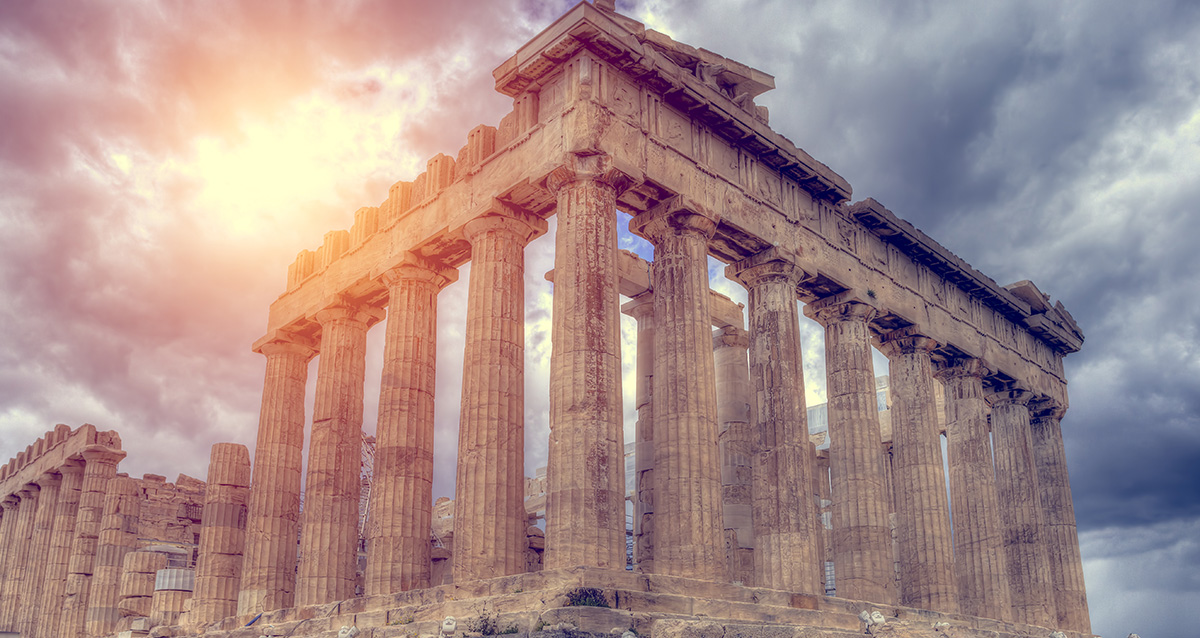
Representatives of the younger generation of celestials in Ancient Hellas were considered the main gods. Once upon a time, they took away the right to rule the world from the older generation (titans), who personified the natural elements and universal forces. Having defeated the Titans, the younger gods, under the leadership of Zeus, settled on Mount Olympus. We will tell you about the 12 main Olympian gods and goddesses, their assistants and companions, who were worshiped by the Greeks!
King of the gods and main deity. Representative of the endless sky, lord of lightning and thunder. Zeus had unlimited power over both people and gods. The ancient Greeks honored and feared the Thunderer, appeasing him in every possible way with the best donations. Babies learned about Zeus even in the womb, and attributed all misfortunes to the wrath of the greatest and omnipotent.
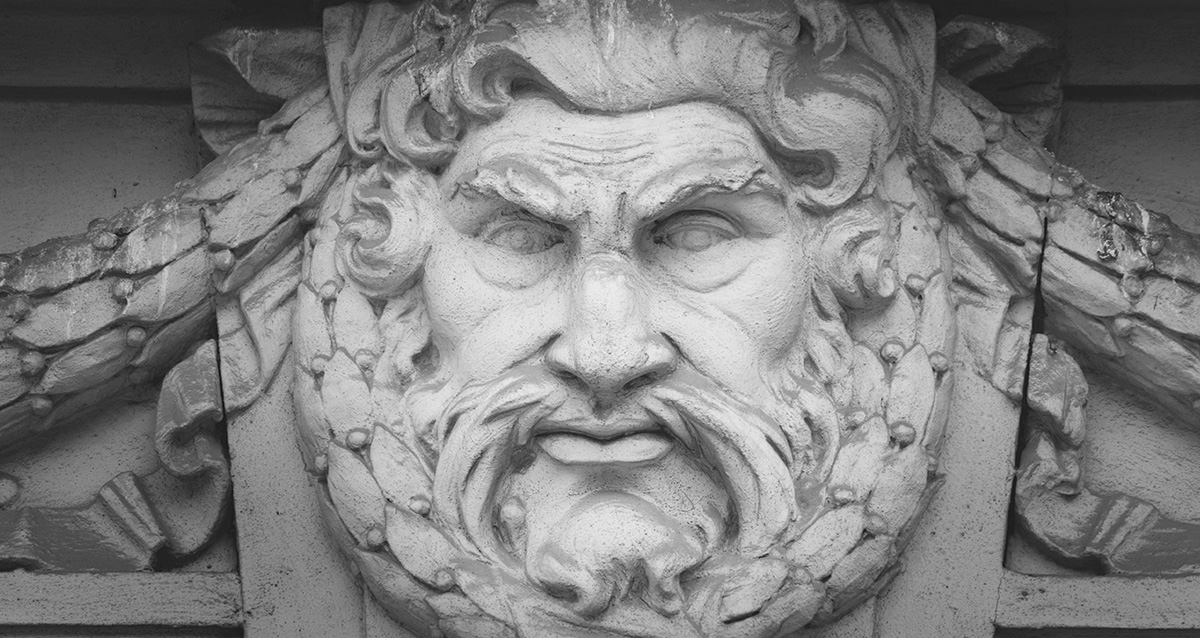
Brother of Zeus, ruler of the sea, rivers, lakes and oceans. He personified courage, stormy temper, hot temper and unearthly strength. Being the patron saint of seafarers, he could cause famine, capsize and sink ships and decide the fate of fishermen in open waters. Poseidon is closely associated with earthquakes and volcanic eruptions.

Brother of Poseidon and Zeus, to whom all underworld, kingdom of the dead. The only one who did not live on Olympus, but was rightfully considered an Olympian god. All the dead went to Hades. Although people were afraid to even pronounce the name of Hades, ancient mythology he is represented as a cold, unshakable and indifferent god, whose decision must be carried out unquestioningly. Into his dark kingdom with demons and shadows of the dead, where they cannot penetrate Sun rays, you can only enter. There is no turning back.

Aristocratic and refined, the god of healing, sunlight, spiritual purity and artistic beauty. Having become the patron of creativity, he is considered the head of the 9 muses, as well as the father of the god of doctors, Asclepius.
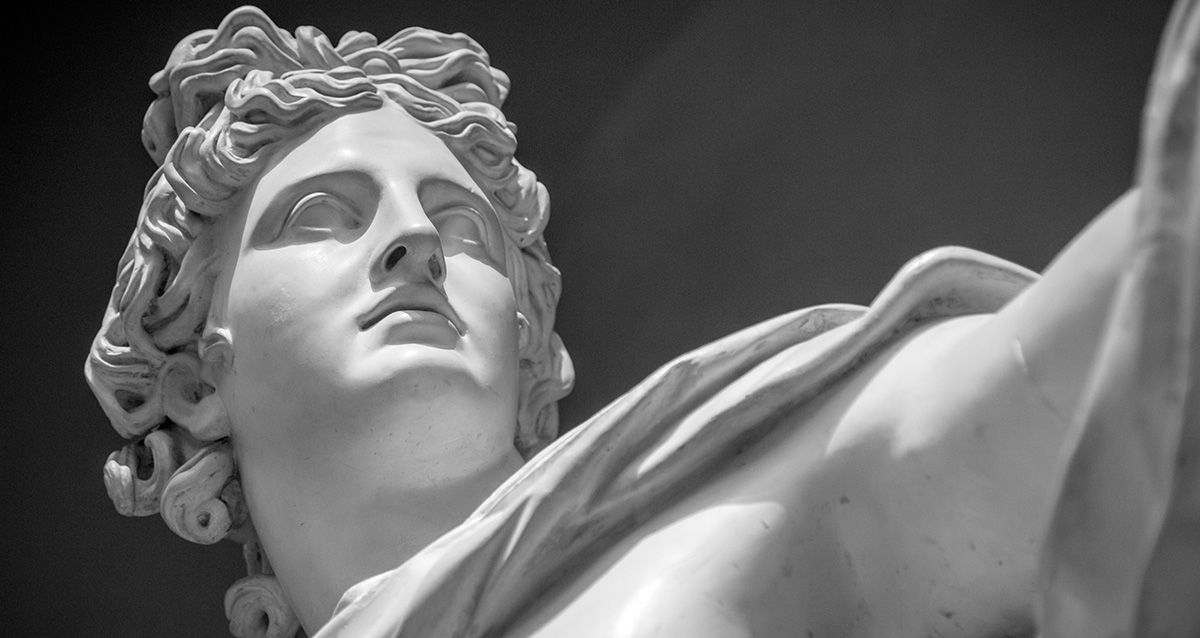
The most ancient god of roads and travel, patron of trade and merchants. This celestial being with wings on his heels was associated with a subtle mind, resourcefulness, cunning and excellent knowledge of foreign languages.
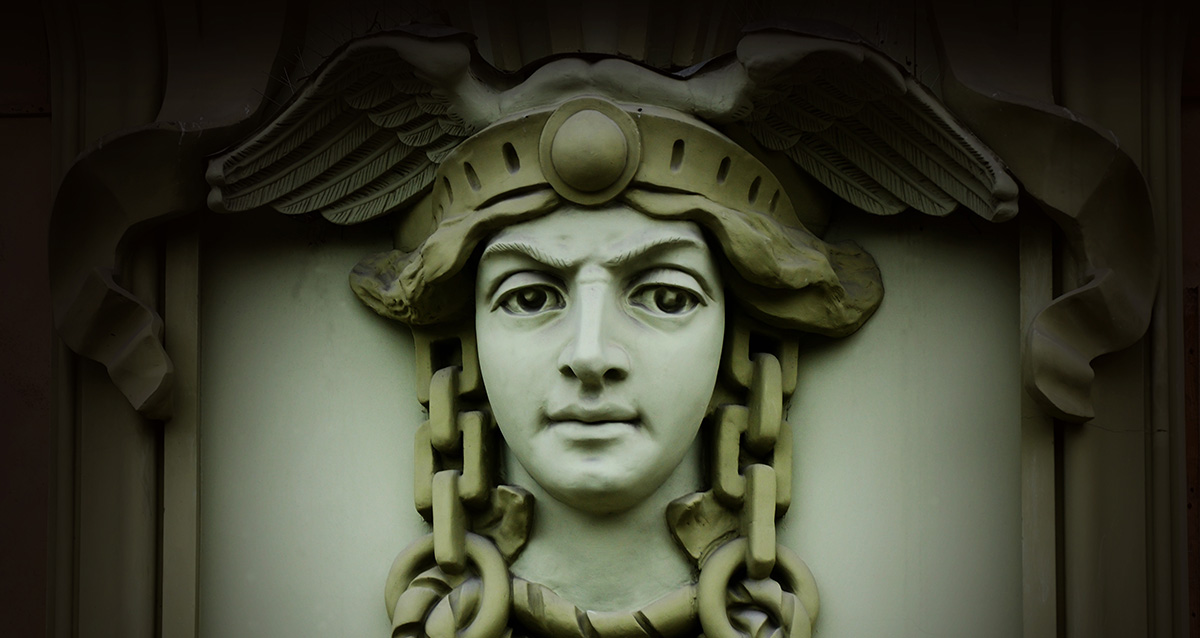
The insidious god of war and fierce battles. The mighty warrior preferred bloody reprisals and waged war for the sake of war itself.

Patron of blacksmithing, pottery and other crafts associated with fire. Even in ancient times, Hephaestus was associated with volcanic activity, roar and flame.
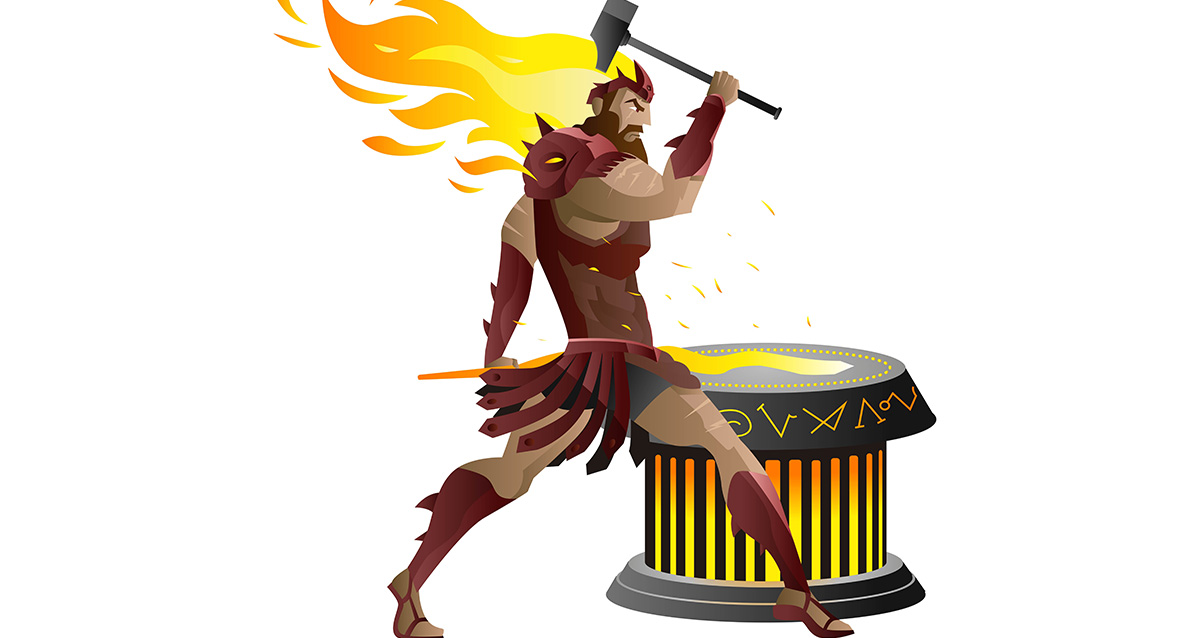
Wife of Zeus, patroness of marriage and conjugal love. The goddess was distinguished by jealousy, anger, cruelty and excessive severity. In a state of rage, she could bring terrible troubles to people.
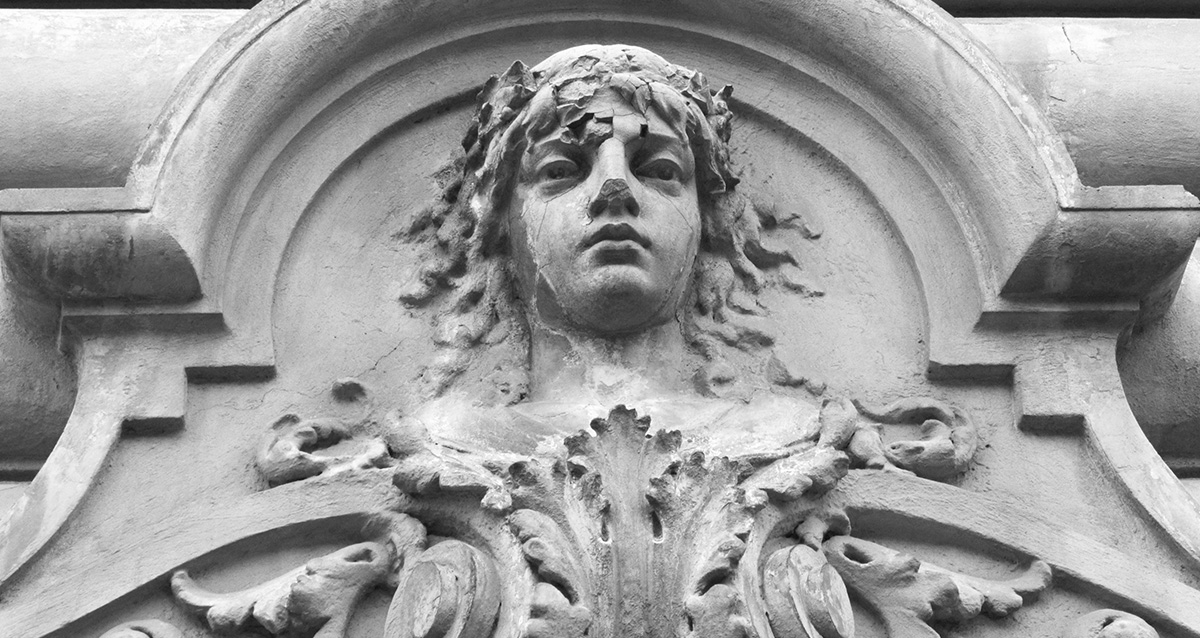
The daughter of Zeus, the beautiful goddess of love, who easily fell in love with herself and fell in love herself. In her hands was concentrated the great power of love, pure and sincere, which she bestowed on the gods and people.

Goddess of just war, wisdom, patroness of spiritual pursuits, art, agriculture and crafts. Pallas Athena was born from the head of Zeus in in full uniform. Thanks to her, public life flows and cities are built. For her knowledge and intelligence, she was the most respected and authoritative celestial being among the pantheon of Greek gods.

Patroness of agriculture and goddess of fertility. She is the guardian of life, who taught man peasant labor. She fills the barns and replenishes supplies. Demeter is the embodiment of the primitive energy of creativity, the great mother who gives birth to all living things.
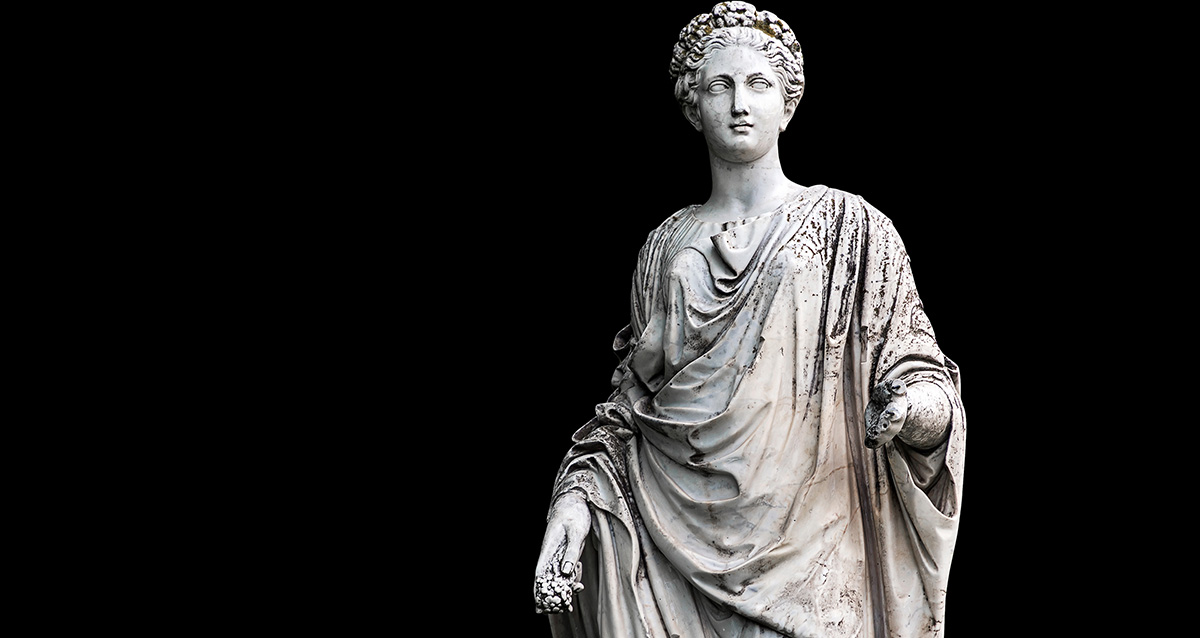
Artemis
Goddess of forests and hunting, sister of Apollo. Patroness of vegetation and fertility. The virginity of the goddess is closely connected with the idea of birth and sexual relations.
In addition to the 12 main Olympian gods, among the Greek celestials there were many equally significant and authoritative names.
God of wine and everyone natural forces that make a person happy.
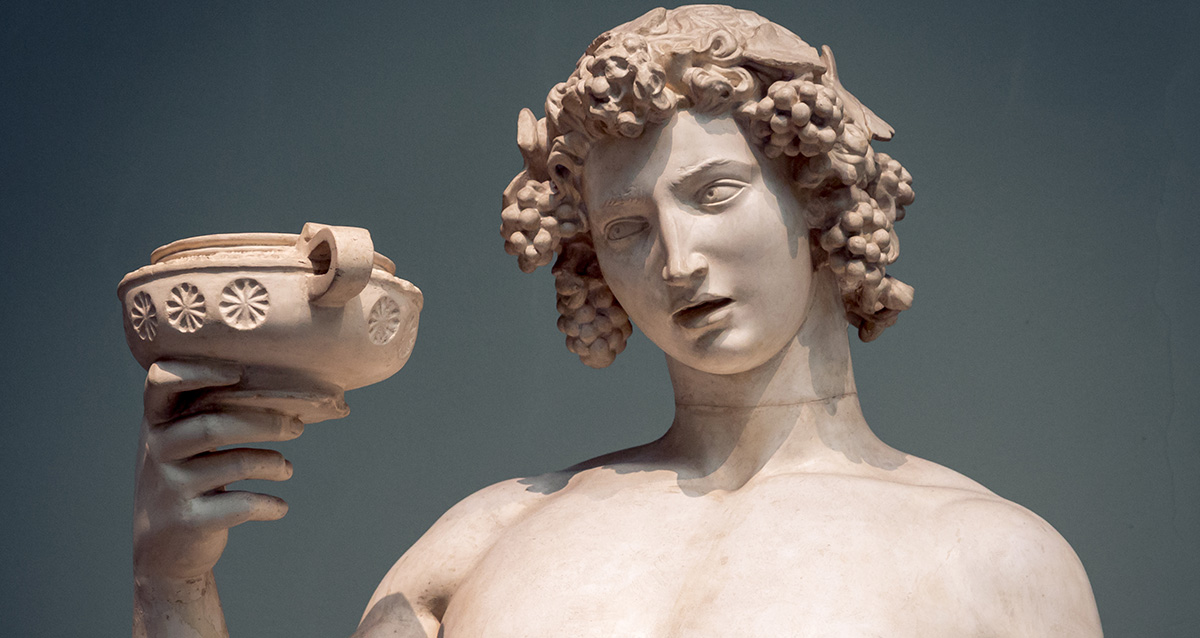
Morpheus. Everyone was in his arms. Greek god of dreams, son of Hypnos - god of sleep. Morpheus could take any form, accurately copy his voice, and appear to people in their dreams.
Son of Aphrodite and part-time god of love. A cute boy with a quiver and a bow accurately throws arrows at people, which ignite unbreakable love in the hearts of gods and people. In Rome, Cupid corresponded to it.

Persephone. The daughter of Demeter, kidnapped by Hades, who dragged her to his underworld and made her his wife. She spends part of the year upstairs with her mother, the rest of the time she lives underground. Persephone personified the grain that is sown in the ground and comes to life when it comes out into the light.
Patroness hearth and home, family and sacrificial fire.
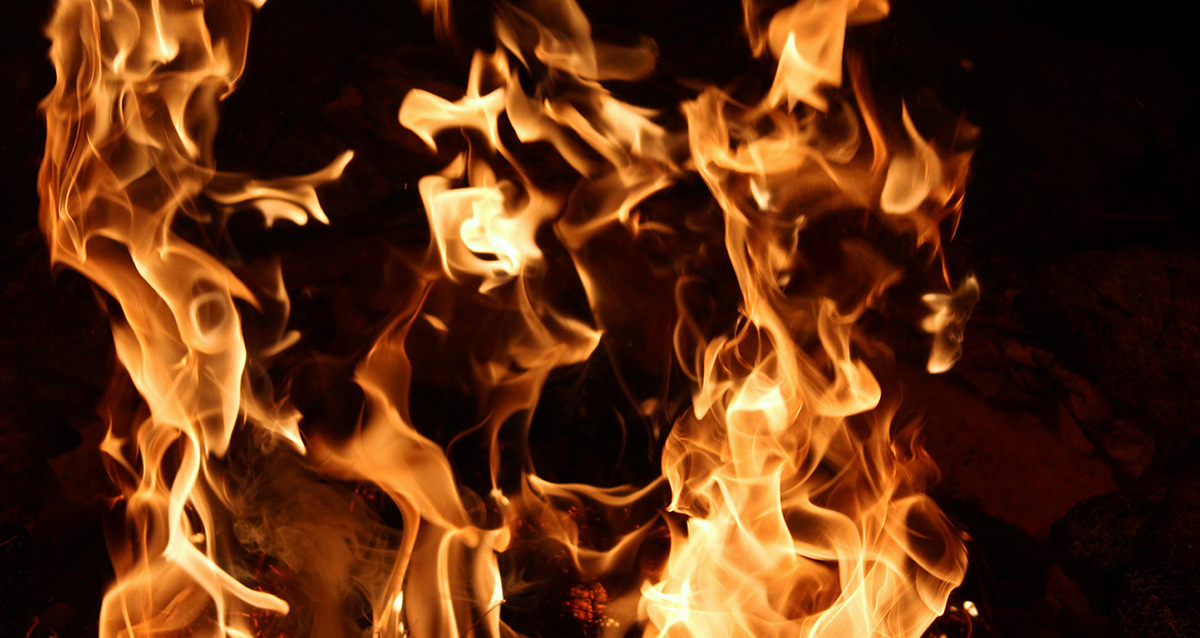
Pan. Greek god of forests, patron of shepherds and flocks. Represented with goat legs, horns and a beard with a pipe in his hands.
Goddess of victory and constant companion of Zeus. The divine symbol of success and a happy outcome is always depicted in a pose of rapid movement or with wings. Nika takes part in all musical competitions, military enterprises and religious celebrations.

And that is not all greek names gods:
- Asclepius is the Greek god of healing.
- Proteus is the son of Poseidon, a sea deity. He had the gift of predicting the future and changing his appearance.
- Triton, the son of Poseidon, brought news from the depths of the sea by blowing a conch shell. Depicted as a mixture of horse, fish and man.
- Eirene - the goddess of peace, stands at the Olympian throne of Zeus.
- Dike is the patroness of truth, a goddess who does not tolerate deception.
- Tyukhe is the goddess of luck and successful chance.
- Plutos is the ancient Greek god of wealth.
- Enyo is the goddess of furious war, causing fury in the fighters, bringing confusion to the battle.
- Phobos and Deimos are the sons and companions of Ares, the god of war.


